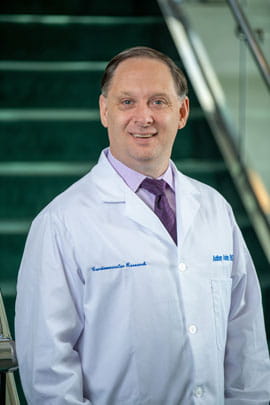Anthony W. Ashton

Resident Faculty
Professor
Dr Ashton’s research program seeks to understand the role of alternate splicing (and the structurally diverse proteins it creates) in the pathogenesis of disease. These data have implications for how we treat multiple diseases, but his team’s disease foci are cancer, cardiovascular disease, reproduction, asthma and aging.
Contact Us
Education and training
Education
-
Postdoctoral FellowshipAlbert Einstein College of Medicine
-
PhDUniversity of New South Wales
Academic titles
2020-present — Professor, Program in Cardiovascular Medicine at LIMR
2007-2020 — Scientific Director, Division of Perinatal Research, Kolling Institute for Medical Research, University of Sydney
2006-2020 — Senior Lecturer, R.D. Wright Research Scientist, Kolling Medical Research Institute
2006-2020 — Visiting Assistant Professor, Department of Pathology, Albert Einstein College of Medicine
